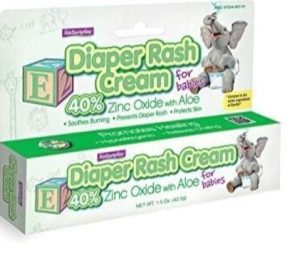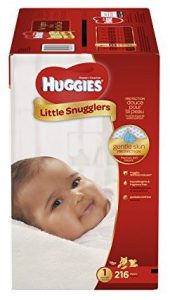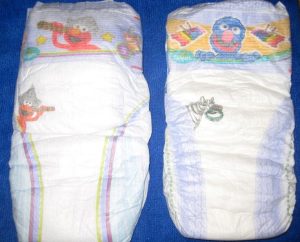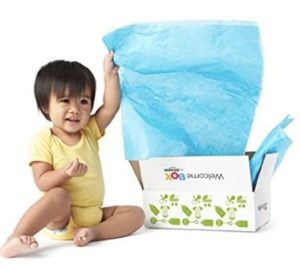Diapers are a must-have for any parent with a little one. But with so many different types and brands available, it’s natural to wonder if diapers expire. Do baby diapers expire? This article will answer that question and provide tips for storing and using diapers safely.
Understanding Diaper Expiration Dates
Diapers don’t technically expire in the same way food does. However, manufacturers often place a “best before” date on the packaging. This date indicates the timeframe when the diaper is likely to perform at its peak capacity.
What happens after the “best before” date? Diapers may not leak as effectively, or the materials might break down more easily. This can lead to blowouts and discomfort for your baby.
Factors Affecting Diaper Performance
Several factors can influence how well a diaper performs over time:
Storage conditions:
Heat, humidity, and sunlight can degrade the materials in a diaper, reducing its effectiveness.
Diaper type:
Disposable diapers are generally more susceptible to degradation than cloth diapers.
Material quality:
Higher-quality materials tend to hold up better over time.
Signs Your Diapers Might Be Past Their Prime
Here are some clues that your diapers may be past their prime:
- Unusual stiffness: The diaper feels noticeably stiffer than usual.
- Deteriorated elastics: The elastic leg cuffs or waistband seem loose or damaged.
- Faded colors or prints: The colors or designs on the diaper appear faded.
- Strong chemical odor: The diaper has a strong chemical smell.
If you notice any of these signs, it’s best to discard the diapers and use a fresh pack.
Safe Storage Tips for Diapers
Here’s how to store your diapers to maximize their lifespan:
- Keep them cool and dry: Store diapers in a cool, dry place away from direct sunlight and heat sources.
- Avoid extreme temperatures: Don’t store diapers in very hot or cold environments.
- Keep them in the original packaging: The packaging helps protect the diapers from dust and moisture.
- Use older diapers first: Once you open a pack of diapers, use the older ones first to avoid them sitting unused for too long.
Alternatives to Throwing Away Unused Diapers
If your unopened diapers are past the “best before” date but appear to be in good condition, here are a few options:
- Donate them to a local shelter or organization that helps families in need. Call ahead to confirm they accept diaper donations.
- See if a friend or family member who has a younger baby could use them.
Important note: Only donate unopened diapers that are not significantly past the “best before” date.
Prioritizing Your Baby’s Comfort
While diapers don’t technically expire, they may not perform as well after the “best before” date. The most important thing is to ensure your baby’s comfort and hygiene. If you’re unsure about the quality of your diapers, it’s always best to err on the side of caution and use a fresh pack.
By following these tips, you can ensure your baby has a comfortable and leak-free experience with diapers.
Diapers are an essential part of caring for a baby. Understanding diaper expiration dates and proper storage techniques will help you keep your little one clean and comfortable.
Do Baby Diapers Actually Expire?
1. Manufacturer Guidelines
Most diaper brands do not explicitly state an expiration date on their packaging. Instead, they recommend using diapers within a reasonable timeframe after purchase to ensure quality and performance.
2. Absorbency and Elasticity
Over time, the absorbent materials in diapers may degrade, affecting their ability to contain moisture effectively. Elasticity in the leg cuffs and waistbands may also diminish, compromising the diaper’s fit and leak protection.
3. Storage Conditions
Proper storage plays a significant role in maintaining diaper quality. Store diapers in a cool, dry place away from direct sunlight and humidity to prevent deterioration of materials and adhesives.
Choosing the Right Diaper
There are many diaper options available. Consider trying different brands or types to find the best fit and performance for your baby. Here are some factors to think about:
- Absorbency: Choose diapers that can handle your baby’s wetness needs.
- Leak protection: Look for features like leak guards and snug-fitting leg cuffs.
- Comfort and fit: A well-fitting diaper is essential for preventing leaks and discomfort.
- Sensitivity: If your baby has sensitive skin, consider fragrance-free and hypoallergenic options.
Making the Most of Your Diaper Supply
Diapers are an essential part of life with a little one. Let’s explore how to get the best performance out of them:
- Storage matters: Keep unopened diapers in a cool, dry place. This helps them stay fresh and effective longer.
- Use it or lose it: Once you open a pack, use the older diapers first to avoid them sitting unused for a long time.
- Watch for wear: If a diaper feels stiff, has loose elastics, or seems faded, it might be time for a new one.
Finding a Good Fit for Your Baby
There are many diaper options available, so you can find the perfect fit for your baby. Here are some things to consider:
- Leak protection: Look for diapers with features like leak guards and snug-fitting leg cuffs to keep messes contained.
- Comfort: A good diaper shouldn’t bunch up or rub your baby’s skin.
- Sensitivity: If your baby has sensitive skin, consider fragrance-free and hypoallergenic options
Environmental Considerations
1. Biodegradability
Explore options for eco-friendly diapers that prioritize biodegradable materials, reducing environmental impact compared to traditional disposable diapers.
2. Recycling Efforts
Some diaper brands offer recycling programs or use recycled materials in their products. Research these options to support sustainable diaper choices and reduce waste.
Conclusion: Ensuring Diaper Quality and Safety
Baby diapers are essential for keeping infants comfortable and dry, but do they have an expiration date? Understanding the shelf life and considerations for using diapers is crucial for parents seeking optimal care for their babies. While baby diapers do not have a strict expiration date, understanding the factors that affect their usability is essential for ensuring optimal performance and safety. By storing diapers properly, monitoring for signs of deterioration, and following recommended usage guidelines, parents can confidently provide comfort and protection for their babies.
Maintaining awareness of diaper quality and considering environmental impacts encourages responsible diaper use and supports sustainable practices within the parenting community.










